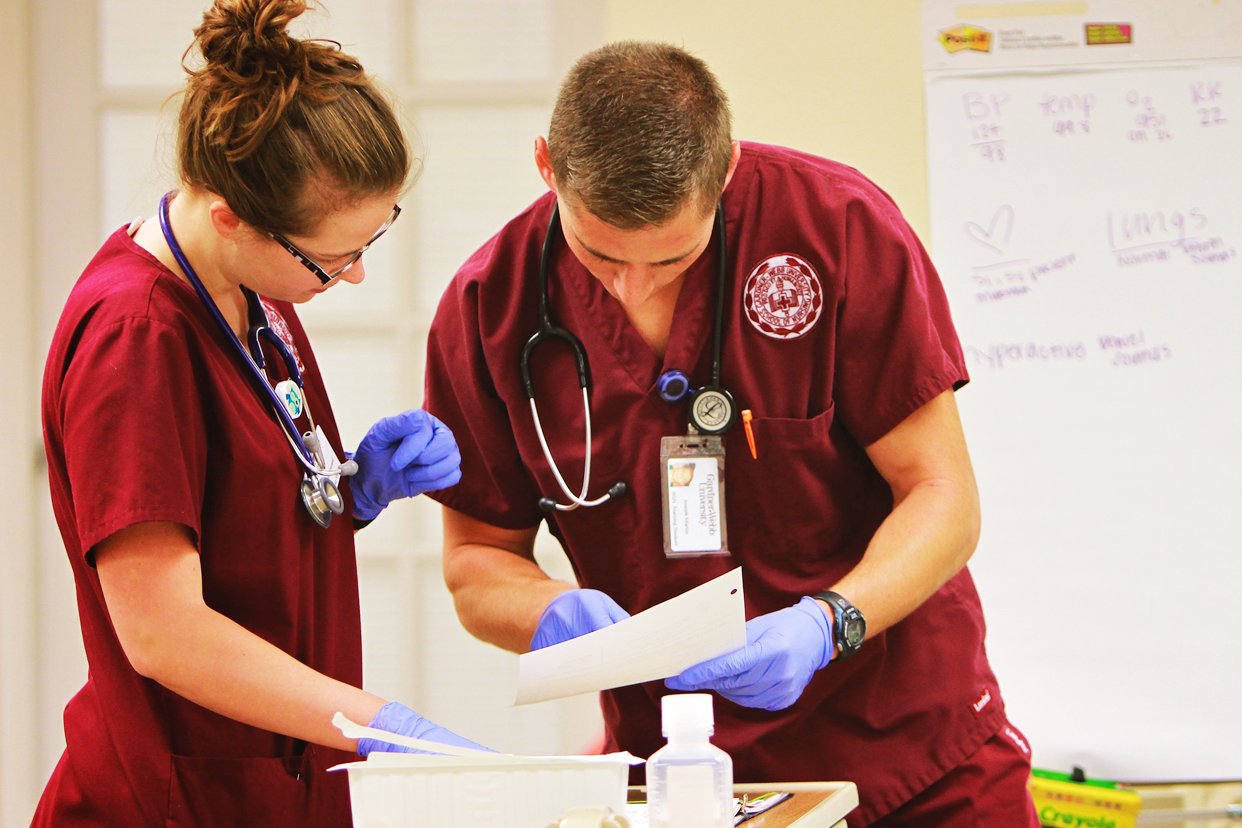RN Mental Health Online Practice 2019 - A Look Back
Back in 2019, something important was happening in how people got help for their minds. Nurses, the registered ones, were starting to use the internet more to give mental health support. This shift was a big deal for many, allowing care to reach people who might not have been able to get it before. It truly opened up new ways for folks to connect with the help they needed, right from their homes, so it's almost a different world now, really.
This period, around 2019, saw nurses finding their place in providing care through screens. It wasn't just about giving medicine or checking on physical health; it was about having conversations, offering comfort, and guiding people through their feelings, virtually. The idea of getting mental health care without leaving your house was, in some respects, quite new for many, and nurses were at the forefront of making this a reality for a lot of people, you know.
The changes we saw then set the stage for much of what we experience today in online health services. Thinking about the registered nurse mental health online practice in 2019 helps us appreciate how far things have come and how important those early steps were. There was also talk about how new nursing exams, like the Next Generation NCLEX, might fit into all this, preparing nurses for these modern ways of working, at the end of the day.
Table of Contents
- What was online mental health practice like for RNs in 2019?
- How did RNs begin to offer mental health support remotely?
- The growing need for RN mental health online practice
- What tools and setups helped RNs practice mental health online?
- The Next Generation NCLEX and its connection to online mental health skills
- Preparing for future changes in RN mental health online practice
- What challenges did RNs face in online mental health care?
- Looking ahead for RN mental health online practice
What was online mental health practice like for RNs in 2019?
In 2019, the idea of getting health care over the internet was still gaining ground, especially for mental well-being. It wasn't as common as it is now, but people were starting to see the benefits. Nurses, specifically those who were registered, found themselves in a special spot to help out. They were able to use video calls or secure messages to talk with people who needed support for their feelings or thoughts, you know, kind of like a friendly chat but with a purpose.
Registered nurses took on many roles in this new online space. They might have been helping someone figure out how to manage their daily worries, or perhaps giving advice on how to get a better night's rest. Sometimes, they were just there to listen, which, honestly, is a very big part of caring for someone's mental health. Their presence online meant that more people could get a helping hand, often without needing to travel, which was a pretty big deal for many, in a way.
For individuals seeking care, this online option was a welcome change. It meant less time off work, no need for childcare, and a feeling of being more comfortable in their own surroundings while talking about sensitive topics. The ability for registered nurses to offer this kind of mental health online practice truly made a difference for a lot of folks who might have felt alone or unsure where to turn, so it really helped open doors for care.
How did RNs begin to offer mental health support remotely?
When nurses first started giving mental health help from a distance, they used what was available at the time. This meant using secure video platforms, much like what we use for family calls, but with extra safety measures to keep conversations private. They had to learn how to connect with people when they weren't in the same room, which is a bit different from how they usually work, obviously.
Training for this new way of working was important, too. Nurses needed to understand how to spot signs of distress through a screen, and how to build trust without being face-to-face. It was about adapting their usual skills to a new setting, making sure that the care they gave online was just as good as the care given in person. This meant thinking about things like body language on video and how to make someone feel heard, even from afar, in some respects.
Building a connection with someone over the internet can be a unique challenge, but nurses found ways to do it. They used their natural ability to show warmth and understanding, even through a digital link. This early work in registered nurse mental health online practice laid down the groundwork for how we think about remote care today, allowing more people to feel comfortable reaching out for help with their minds, at the end of the day.
The growing need for RN mental health online practice
The need for help with mental well-being was, and still is, very big. Many people find it hard to get to a clinic or an office for appointments. Maybe they live far away from services, or they have busy lives that make regular visits tough. This is where the idea of online care, especially from registered nurses, started to look like a very good answer, you know, for a lot of people.
Having nurses offer mental health support over the internet meant that care could reach more corners of the country, and even the world. People in small towns, or those who found it hard to leave their homes due to their own health concerns, could suddenly talk to a professional. This expanded reach was a huge step in making sure more people got the attention they needed for their minds, which is that, a really good thing.
Online practice by registered nurses also helped break down some of the common things that stop people from getting mental health care. For example, some people feel worried about being seen going to a mental health clinic. Doing it online from home can feel much safer and more private. This simple change made a big difference in getting people to actually seek out help, which, honestly, is a very important part of staying well, basically.
What tools and setups helped RNs practice mental health online?
To do their work online, registered nurses used some pretty straightforward tools. The main thing was a reliable internet connection and a computer or tablet with a camera and microphone. These were the basic building blocks for having video conversations with people. It wasn't overly complicated, but it needed to be dependable for both the nurse and the person getting help, so it's almost like setting up a small home office, really.
Keeping conversations private was a top concern, as you can imagine. Nurses made sure they used special, secure platforms for their calls and messages. These platforms had features to protect personal information, making sure that what was said between the nurse and the individual stayed just between them. This security was a key part of building trust in the online mental health online practice space, you know, for everyone involved.
Beyond the tech, nurses also thought about their physical space. They often set up a quiet, private area in their homes where they wouldn't be disturbed during sessions. This helped create a feeling of professionalism and calm, even though the interaction was happening over the internet. It showed that even when providing care from a distance, the registered nurse was still committed to making the experience as good as possible for the person they were helping, which is that, very considerate.
The Next Generation NCLEX and its connection to online mental health skills
Around 2019, there was a lot of talk about changes coming to the NCLEX, the big exam nurses take to get their license. This new version, often called the Next Generation NCLEX, aimed to test nurses on how well they think through problems and make decisions in real-life situations. It was designed to make sure new nurses were ready for the many different kinds of care they would provide, including, perhaps, new ways of giving mental health support, you know.
While the Next Generation NCLEX wasn't specifically about online care, its focus on clinical judgment could certainly help nurses prepare for the unique demands of online mental health practice. Thinking critically about a person's situation, even when you can't see them in person, is a skill that the new exam was trying to measure. This meant that nurses coming out of school would, in theory, be better equipped to handle situations where they needed to gather clues and make choices without all the usual physical cues, which is that, quite helpful.
The shift towards a more judgment-focused exam meant that nursing schools might start teaching in ways that better prepared students for varied care settings, including remote ones. For registered nurse mental health online practice, this was a quiet but important development. It suggested that future nurses would have a stronger foundation in problem-solving that could apply to any setting, whether in a hospital or on a video call, so it's almost like building a stronger base for all kinds of care, really.
Preparing for future changes in RN mental health online practice
Even in 2019, nurses knew that the world of health care was always changing. For those working in mental health online practice, this meant staying open to new ideas and learning new things. It wasn't a one-and-done kind of learning; it was more about always keeping up with what's new and what's working best, you know, for everyone involved.
Continuing to learn was a big part of this. Nurses might take extra courses or attend workshops to improve their skills in giving care remotely. This could involve learning about new technologies, or better ways to talk with people through a screen. It was about making sure they could give the best possible care, no matter how the tools or methods changed, which, honestly, is a very good thing to do.
Staying current also meant being aware of new rules or guidelines that might come out for online care. The field was still quite new, so things were always being adjusted. Nurses had to be ready to adapt their ways of working to fit these changes, ensuring their registered nurse mental health online practice was always safe and effective. This flexibility was, in some respects, a key part of working in this fast-moving area, at the end of the day.
What challenges did RNs face in online mental health care?
Working in online mental health care brought its own set of difficulties for registered nurses. Sometimes, the internet connection would act up, or the video would freeze, making it hard to have a smooth conversation. These technical hiccups could be frustrating for both the nurse and the person seeking help, and they often required a bit of patience and quick thinking to sort out, you know, for both sides.
Building a strong connection with someone without being in the same room was another thing nurses had to really focus on. It's easier to pick up on little cues like body language or tone of voice when you're face-to-face. Over a video call, some of those cues might be missed, so nurses had to find other ways to show they were listening and truly understood what the person was going through. This was a unique skill to develop for registered nurse mental health online practice, basically.
Privacy was always a big worry, too. Nurses had to make sure that the place they were working from was private, and that no one else could hear the conversations. They also had to help the person they were talking to make sure their own space was private enough. These concerns were very important to keep trust and ensure that sensitive discussions stayed confidential, which, honestly, is a very big part of caring for someone's mental health, you know.
Looking ahead for RN mental health online practice
The work done by registered nurses in mental health online practice in 2019 was just the start of something much bigger. It showed that giving care remotely was not only possible but also very helpful for many people. The lessons learned during those early days continue to shape how online mental health services are provided today, so it's almost like a foundation was built, really.
We can expect to see even more people getting help for their minds through online methods. As technology gets better and more people become comfortable with virtual visits, the reach of registered nurses in this area will surely grow. This means more chances for people to get the support they need, when and where they need it, which is that, a truly good thing for everyone.
The role of the registered nurse in mental health online practice keeps getting bigger and more important. They are key players in making sure that mental health care is easy to get, private, and effective, no matter where someone lives. Their ability to connect with people and offer meaningful support through a screen is a valuable part of modern health care, at the end of the day.
This article looked back at how registered nurses began offering mental health support online in 2019, covering the initial steps, the growing need for such services, the tools they used, and how the Next Generation NCLEX might have played a part in preparing nurses for these new ways of working. It also touched on the challenges nurses faced and what the future might hold for this important area of care.

Registered Nurse

Registered Nurse Jobs | 50+ Registered Nurse Job Vaccancies - Truecare24

Registered Nurse Working Nurse Practitioner Vs. RN: Comparing Two